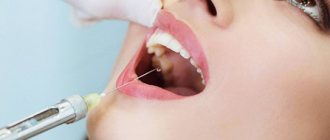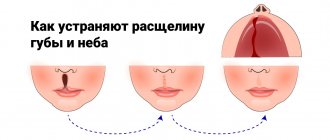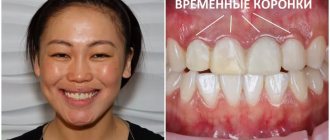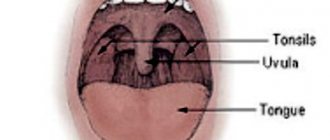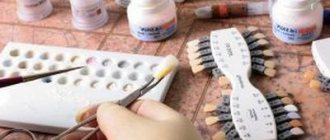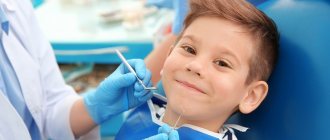Before the invention of anesthesia, about 70% of operations ended in the death of the patient; patient survival depended only on the speed of the surgeon’s work. In 1839, the French surgeon Velpeau stated that “the elimination of pain during operations is a chimera that cannot even be thought about; cutting instrument and pain are two concepts inseparable from each other in the mind of the patient.”
On March 30, 1842, the American doctor Crawford Long first gave a patient to breathe ether before surgery. He published his results only in 1849, and on October 16, 1846, a test of ether anesthesia took place in the USA.
In Russia, the first operation using ether anesthesia was performed by a doctor, doctor of medicine, surgeon Fyodor Inozemtsev . The operation took place on February 7, 1847 on the territory of the First City Hospital in Riga. , Nikolai Pirogov also used ether anesthesia .
Anesthesia today
Today there are three main types of anesthesia - local, general and spinal. For quick interventions and for children, inhalation anesthesia is used - the child inhales an anesthetic inhalation mixture through a mask and falls asleep. Intravenous anesthesia is used for long and difficult operations.
By the way
Epidural anesthesia does not work for 1 in 20 patients, and red-haired people need 20% more anesthetics to stop their pain. In traumatology, regional anesthesia is used - a local anesthetic is injected into the area of the nerve, providing complete anesthesia of the limb. Epidural anesthesia is very popular for facilitating the labor process, since the patient can either remain conscious or doze off under the influence of drugs.
Spinal anesthesia is difficult to control and is rarely used, but the patient is completely switched off and does not feel pain. Anesthesia with preserved consciousness is used only in special cases, most often in neurosurgery, if it is necessary to maintain the patient’s consciousness and communicate with him during the operation. Oral (through the mouth) and rectal (through the anus, using an enema) anesthesia is practically not used today. The intramuscular method of pain relief is also becoming a thing of the past.
Removal of fibroids: rehabilitation after surgery in
The health, well-being and mood of our patients is our main value. That is why we provide them with all the conditions to achieve the desired results. Our center employs professional doctors who regularly improve their skills. We adhere to an individual multidisciplinary approach: all procedures are selected depending on the health indicators of each individual patient; not only rehabilitation specialists, but also doctors of other subspecialties participate in decision-making. This is the only way we can choose the optimal course of procedures. Our center is equipped with modern simulators and devices that have proven their effectiveness. The friendly atmosphere and cozy rooms make you feel comfortable. Good mood and positive attitude play a big role in recovery, so we have created a pleasant microclimate, and professional psychotherapists with extensive practical experience work with patients.
How to prepare for surgery
Before any operation, excluding emergency cases, careful preparation is carried out: doctors, the attending surgeon and an anesthesiologist assess the patient’s health, conduct an examination and prescribe tests, including a general blood test, a blood clotting test, a general urinalysis, and an ECG.
Based on all procedures, the doctor assesses the patient’s readiness for anesthesia. The operation is postponed if the patient has ARVI, high fever, or exacerbation of a concomitant disease.
Article on the topic
7 common myths about anesthesia The absence of complications after anesthesia is determined by several factors - the patient’s health condition and the work of the anesthesiologist. Therefore, before anesthesia, it is important to properly prepare for the operation and take into account all the nuances, in particular:
- Choose a medical institution as carefully as possible, because the risk of side effects from the use of anesthesia is lower, the higher the qualifications of the anesthesiologist.
- Tell your doctor about all the medications you are taking—drugs when combined can change their activity and duration of action. For example, taking regular aspirin affects blood clotting; sleeping pills and sedatives can change the body's reaction to the administration of painkillers.
- Tell your doctor about all concomitant diseases. A contraindication to anesthesia is any acute illness, exacerbation of a chronic disease, or even the onset of menstruation.
- Do not eat or drink (even water) 6 hours before anesthesia. In consultation with your doctor, you can take sedatives at night and in the morning to get enough sleep and not worry too much. It is also necessary to avoid alcohol consumption.
- It is recommended to eliminate cigarette smoking from your life 6 weeks before surgery - this will reduce the risk of respiratory complications after surgery. Under no circumstances should you smoke on the day of surgery.
- Before the operation, it is necessary to remove all removable objects (dentures, piercings) from the oral cavity, as well as remove contact lenses and hearing aids.
- Remove nail polish from nails as it may interfere with the patient's breath analysis.
- Check with your doctor about what exactly you need to prepare for surgery. This usually concerns the preparation of the necessary clothing, personal hygiene products and items to fill the time free from treatment.
The doctor decides which type of anesthesia is right for you. Today, anesthesiologists use about a dozen drugs during surgery. Often, even for the same operation, but for different patients, different anesthesia is used. In emergency cases of anesthesia, the best type of “urgent” anesthesia is the one that the anesthesiologist uses daily and is the best at.
Is it possible to smoke after a light filling?
Many owners of a bad habit immediately light a cigarette upon leaving the dentist. What consequences can this lead to? During treatment, for example, caries or periodontitis, the structure of the teeth is disrupted, and sometimes the mucous membrane can be injured. Tobacco smoke negatively affects the healing and enamel of teeth. In addition, nicotine, reacting with filling materials, negatively affects their properties. Therefore, after treatment, it is better to give up cigarettes for at least a couple of hours, or better yet, for a day. This will help the tissues recover faster and the filling to become stronger.
"Frivolous" anesthesia
Many people associate anesthesia exclusively with serious operations, when a person is euthanized and completely anesthetized. However, everyone experiences anesthesia during less significant interventions, for example, in the dentist's office.
Article on the topic
Dental anesthesia, or what you need to tell your dentist about And despite the fact that there are modern safe drugs for local anesthesia, carpule technology is used, when the medicine is already prepared and packaged in syringes at the factory, not everyone has dental anesthesia without complications.
The anesthetic risk group includes 30% of those who came for dental treatment. These are people with cardiovascular diseases, allergies, and endocrine pathologies. The condition of the liver and kidneys plays an important role - you need to tell your doctor about the presence of any of these diseases, or better yet, provide medical documents.
Also vulnerable are the elderly, pregnant women, children and those who are very afraid of dental treatment.
What not to do after abdominal surgery to remove fibroids
Patients are interested in what can and cannot be done after surgery to remove uterine fibroids. Rehabilitation usually consists of the procedures and recommendations described above. The main thing is to listen to your doctor and take care of your health. The early period is considered the most important: a number of restrictions are caused by the fact that the wound has not yet healed completely and there is a risk that the stitches will come apart. For this reason, you should not overexert yourself; loads are allowed, but they must be moderate. It is recommended to take a shower instead of a bath to avoid infection.
Is it possible not to wake up after anesthesia?
Many patients are afraid that they may not wake up after anesthesia. On the one hand, this is possible, but these cases are extremely rare. According to statistics, this happens in one out of two hundred thousand planned operations, but even then, most often death occurs not due to anesthesia, but in connection with surgical intervention.
But there are complications after anesthesia. For example, smokers are at high risk of developing bronchitis and pneumonia. After surgery, memory, attention and the ability to remember are often reduced, but this lasts from two weeks to several months. Some patients may experience nausea, dizziness, temporary memory loss, sore throat, hoarseness, but these sensations pass quickly and do not cause harm to the body.
How long does it take for gums to heal after tooth extraction?
The gum healing process depends on many external factors and its duration is completely individual. After tooth extraction, bleeding can last up to three hours, swelling and redness appear in the area of the wound, and the functioning of the jaw is impaired.
All these symptoms gradually disappear within 4-7 days. The main thing is that the infection does not get into the open hole. By following the surgeon’s recommendations, the gums will heal quickly after removal, and in a week you will be living as usual.
Life after CABG
What is coronary artery bypass surgery?
Operation Coronary artery bypass grafting
is an operation that allows you to restore blood flow in the arteries of the heart by bypassing the site of narrowing of the coronary vessel using shunts.
Bypasses increase blood flow to the heart, thereby reducing the frequency of angina attacks and improving cardiac function. The veins of the lower extremities, the sternal artery or the radial artery are used as a bypass graft.
The type of shunt depends on the number and location of narrowed areas of the vessel. A vascular bypass is created as follows: one end of a lower limb vein or an upper limb artery is sutured to the aorta, the other end to a section of the coronary artery located below the narrowed area.
Coronary heart disease (CHD) is caused by a narrowing of the lumen of the coronary vessels, which leads to insufficient oxygen supply to the heart muscle. In such a situation, complaints often arise of pain behind the sternum or in the left half of the chest, the so-called angina pectoris or angina pectoris.
For many, life is divided into “before” and “after” surgery, so the patient thinks: “HOW TO LIVE AFTER THE OPERATION?”
Homecoming
On the day of discharge, plan your activities so that you have time to rest. The emotional excitement of returning home can make you tired, so you will need to get some rest at home. Getting ready may make your chest pain worse. Ask the nurse for pain medication before you leave the hospital.
At home you must adhere to the following rules:
- Get up in the morning at your usual time.
- Swim or shower as needed.
- Always change into different clothes, do not wear night clothes all day. You should think of yourself as a healthy and active person, not as a seriously ill person.
- After periods of activity, after breakfast and lunch, you should lie down and rest. Rest periods after activity are very beneficial, so after taking a walk in the morning, come back and get some sleep.
Walking is very good for you, it will speed up your recovery, in addition to walking, you should not have problems doing housework. You can go to the theatre, restaurant, shop.
In some cases, your doctor may prescribe a more rigorous gradual progression schedule as part of your overall rehabilitation process. Following this program, a few weeks after the operation you will be able to walk 2 - 3 km per day.
When do you go to work?
Patients who performed sedentary work can resume it on average weeks after discharge. Those who are busy with hard work have to wait longer. In some cases, patients will not be able to perform their previous jobs.
What diet should I follow?
Your doctor will explain to you how to eat to reduce your risk of developing heart and vascular diseases. It is very important to reduce the amount of salt and saturated fat you consume. Do not think that after undergoing surgery you will not have any heart problems. If you do not make significant changes to your nutritional diet and lifestyle (quitting smoking, doing recreational exercises), the risk of developing a relapse of the disease will remain very high. You will again have the same problems with the new transplanted veins that you had with your own coronary arteries. You will encounter the same problems that made the first surgery necessary. Don't let this happen again. In addition to strictly following the diet, monitor your weight. Moderation and common sense are the best guides when choosing food and drink.
What medications should I take?
- You should only take medications that your doctor prescribes.
- Do not take the same medications you took before surgery unless prescribed.
- Do not take over-the-counter medications without your doctor's approval.
It is advisable not to lose contact with your doctor after discharge. He is the most informed about your health status and can provide significant assistance with a number of questions. You should call your doctor if you notice signs of infection (redness of the surgical scar, discharge, fever, chills), increased fatigue, shortness of breath, swelling, excess weight gain, changes in heart rate, or any other signs and symptoms that appear You are dangerous.
What if I smoke?
You can't smoke. Over the past decade, convincing material has accumulated indicating the harm caused by smoking to the heart, lungs and other organs. Smoking is the most easily avoidable cause of death.
It should be remembered that smoking can cause death not only from heart disease. But also from cancer. Even the healthiest people are not recommended to smoke. Those at risk of coronary artery disease have even fewer reasons to reach for a cigarette. If you smoke – QUIT!
After discharge and upon arrival home, you may feel weak. Although you may attribute this weakness to heart surgery or heart disease, in reality it is all a matter of weakness in your overused muscles, especially the large ones.
A young man, if he is put to bed for a week, loses approximately 15% of his muscle strength. It is therefore not surprising that an older patient who has been in the hospital for two weeks or more quickly becomes tired and weak when he returns home and tries to resume normal activities.
The best way to restore muscle strength is through exercise. Walking is especially effective after surgery, but be careful not to overdo it.
The main criterion for dosed exercise will be your heart rate; it should not exceed 110 beats per minute during exercise. If for some reason your heart rate exceeds this number, you should change the pace, sit down and give your body a break.
In addition to the purely physical impact, returning home can also affect you psychologically. Patients often complain of depression. These sensations may be caused by emotional release after surgery. Patients sometimes feel that their recovery is going too slowly. They may feel sad and feel like time has stopped. If you feel like you are becoming depressed, it is best to discuss this with your spouse, family, close friends, or doctor.
Questions about sex life
You can resume sexual activity after CABG surgery whenever you want.
But it should be borne in mind that full fusion of the sternum will be achieved in 2.5 - 3.5 months, therefore, during sex, positions that minimize the load on the sternum are preferred (for example, a partner on top).
It is recommended to avoid the following situations:
- being overly tired or agitated;
- have sex after drinking more than 50-100 grams of strong alcoholic drink;
- overeat within 2 hours before the act;
- have an unfamiliar partner.
Stop if you experience chest pain. Some shortness of breath is normal during sexual intercourse.
Attention!
A woman should not plan to have a child until she has fully recovered. Many experts advise waiting at least 1 year. In some cases, after heart surgery, a woman can no longer have children. Talk to your doctor about the implications of surgery for women's health and what type of contraception is right for you. Some contraceptives are not suitable for patients with heart disease.
Driving a car
You will be able to drive a car as soon as your physical condition allows you to do so. It is usually best to wait a few weeks after discharge. But if driving a car is your profession, discuss with your doctor the timing of your recovery period, since in the process of driving a car, the sternum experiences certain loads when turning the steering wheel.
When should I see my doctor again?
How often you visit your doctor after surgery depends on your condition and your doctor's recommendations. Typically, patients are given a date for follow-up consultation upon discharge. When you return home from the clinic, you will need to make an appointment to see your local cardiologist.
Do I need to change my lifestyle?
Typically, coronary artery bypass surgery allows patients to return to a normal lifestyle. The purpose of the operation is to return to work or, if you are already retired, to return to activity and a full life. After surgery, you may want to change something in your lifestyle. It is wise to quit smoking to reduce your risk of having a heart attack. Quit smoking, constantly monitor your blood pressure, monitor your weight, reduce your intake of salt and saturated fats - all this will help you maintain your health for a long time and avoid new problems.
Some doctors recommend that their patients work for a strictly limited time. If you constantly think that you may not have enough time to complete your work, you will constantly find yourself in situations that contribute to stress and increased irritability, which can lead to a heart attack.
Sometimes you can reduce the feeling of time pressure by consciously slowing down the pace of your work or trying not to make a big deal about the problem. If you understand that a particular situation may cause you irritation, try to avoid it or, if possible, allay your fears by discussing the problem with people who are distantly related to it.
What does the future hold for me?
As you recover from surgery. You will be able to fully appreciate its beneficial effects. Increased blood flow in your coronary arteries will mean less pain and less or no angina. You will see that you need less and less medication, and physical activity will tire you less and less. Your overall quality of life will improve!


